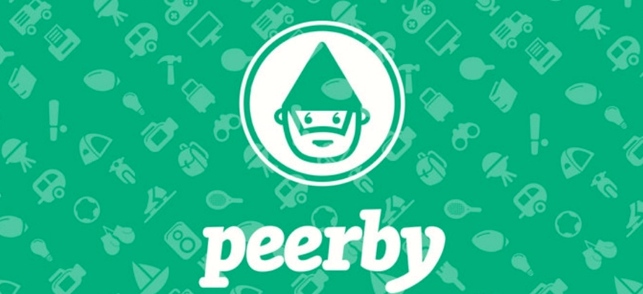
Entrepreneurs need to become experts in their industries in order to survive the ocean of startups developing across the globe. By establishing yourself as a leader in your field of interest, you can attract loyal customers and build trust in your product or service. Your expertise differentiates you from competitors, and ultimately is the secret sauce to your business venture.
For this reason, The Founder Institute has gathered our expansive network of global entrepreneurs to share valuable insights into each of their specific industries. In this installment of Ask an Expert, Founder & CEO of Peerby, Daan Weddepohl, shares his thoughts on how the sharing economy is transforming how we do business across the world.
Peerby is a website and app that enables people to borrow the things they need from others in their neighborhood in 30 minutes. With half a billion dollars of inventory on the platform, Peerby is a leading pioneer in the product borrowing space worldwide.

There are now 17 billion-dollar companies, with 60,000 employees and $15 billion in funding, in the sharing or collaborative economy. If that’s any indicator, the collaborative economy is still in its infancy, and many more billion-dollar companies are coming soon, according to Jeremiah Owyang and VB Profiles, a market intelligence firm partly owned by VB. The report was originally delivered by John Koetsier in a VentureBeat article titled, “The sharing economy has created 17 billion-dollar companies (and 10 unicorns).”
What makes the sharing economy an opportunity to start a business?
DW: During the industrial revolution, centralization efficiently helped us build and scale companies. By centralizing assets and workers in factories, it was possible to achieve economy of scale. For a long time this was the most efficient way to run a business. The internet, mobile technology, and big data now allow for an even more efficient way to organize and distribute.
Airbnb created the world's biggest hotel chain. Not by acquiring assets, but by collecting untapped potential, the idle capacity of rooms owned by people all over the world. The world's biggest hotel chain didn't have to build any rooms. It just used what was already there. This allows for unprecedented speed in scaling up a company. What took Hilton 100 years, Airbnb did in 6. Creating an online marketplace for untapped potential isn't easy, but once you figure out the model, it can scale at an amazing rate.
Do you believe the sharing economy will change the way businesses are done today?
DW: I believe that we will see many centralized industries disrupted by their distributed counterparts. What we see happening to hotels and taxis today with Airbnb and Uber will happen to many other industries. It will also influence the nature of work. We'll start to see two types of jobs: those who are working on the platform and those who are working for the platform. The latter will be highly flexible and one might have multiple jobs over the course of a day.
What are some tips to start a business in sharing economy?
DW:
- Liquidity, liquidity, liquidity.
Not all marketplaces are alike. Don't just copy an existing marketplace model, but look at the dynamics of the specific demand and supply that you are designing your marketplace for. What are the drivers for both sides of the market? What amount of supply is needed to create liquidity in the marketplace and how can you reach that point as quickly as possible? Sometimes it might require faking one side of the market, sometimes it might require focussing on a specific niche or a smart algorithm.
- Don't scale up too soon.
I thought we were ready to start growing our marketplace in other cities with Peerby. Many times I was wrong. Make your model work in a single geography or niche before launching into others. Scaling up (most of the time) only makes sense if you are scaling up (potential) revenue.
- Don't let your assumptions blind you.
When we started Peerby there were many assumptions about how people would behave. What their incentives would be to take part in the marketplace. Most of them turned out to be wrong. Don't build your model on assumptions. Build it based on validated learnings.
What are some challenges you face in the sharing economy space?
DW: Building an unknown product in an unknown market with an unknown business model isn't easy. We haven't figured out the entire model yet. We're still experimenting every day to find out what's the best way to trigger demand. We're running experiments to fine-tune our revenue model. Our type of marketplace has never been made to work before, so we are pioneers in unplotted territory. We have to discover everything ourselves and that takes a lot of time and energy and there's no guarantee that there is a solution.
Which countries are more suitable for the sharing economy, and why?
DW: Most location based models require some sort of density. So countries with areas of dense population probably have an advantage over sparsely populated areas. Sharing also requires some level of trust. My experience so far is that the concept of trust seems to vary slightly from culture to culture. Whether there are forms of trust in some cultures that lend themselves more for sharing than others is to be seen.
What resources would you recommend to learn more about the sharing economy? (eg: blogs, books, publications)
DW:
- Read the book "What's mine is yours" by Rachel Botsman
- Visit OuiShare Fest, the biggest yearly conference on the sharing economy
- Collaborativeconsumption.com
- Peers.org
- Mesh - the pulse of the sharing economy

